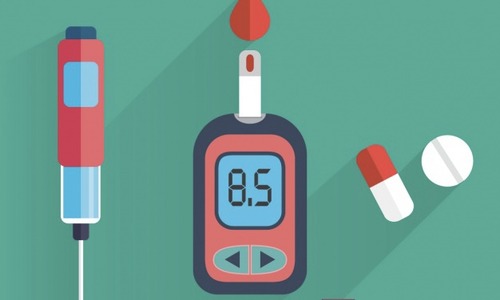Diabetes Management: Lifestyle Strategies for Controlling Blood Sugar
Understanding Diabetes and Blood Sugar Control
Diabetes is a chronic condition characterized by elevated blood sugar levels. Effective management of diabetes involves a multifaceted approach, including lifestyle modifications.
Controlling blood sugar levels is essential for preventing complications and improving overall well-being for those with diabetes.
Healthy Eating Habits
A balanced diet is the cornerstone of diabetes management. Focus on:
- Consuming complex carbohydrates to help regulate blood sugar levels.
- Choosing lean protein sources to support muscle health.
- Incorporating high-fiber foods for better glycemic control.
- Avoiding excessive sugar and refined carbohydrates.
Regular Physical Activity

Exercise is a powerful tool in diabetes management. It helps:
- Improve insulin sensitivity, allowing cells to better absorb glucose.
- Lower blood sugar levels and reduce the need for medication.
- Support weight management and cardiovascular health.
Engage in activities you enjoy, such as walking, swimming, or cycling, and aim for at least 150 minutes of moderate-intensity exercise per week.
Effective Exercise Routine
Consider the following when planning your exercise routine:
- Vary your workouts to prevent boredom and target different muscle groups.
- Include strength training exercises to build muscle and improve metabolism.
- Monitor blood sugar levels before and after exercise to adjust your regimen as needed.
Monitoring Blood Sugar
Regular blood sugar monitoring is vital for diabetes management. It allows you to:
- Understand how different foods and activities affect your blood sugar levels.
- Adjust your medication or insulin as necessary in consultation with your healthcare provider.
- Recognize and address patterns of high or low blood sugar.
Using Glucometers and Continuous Glucose Monitors (CGMs)
Modern technology offers tools like glucometers and CGMs to help you monitor your blood sugar levels more conveniently and accurately.
Stress Management

Chronic stress can impact blood sugar levels. Incorporate stress management techniques, such as:
- Meditation and deep breathing exercises.
- Regular relaxation and downtime in your schedule.
- Talking to a therapist or counselor for support.
Quality Sleep
Poor sleep patterns can affect blood sugar control. Aim for 7-9 hours of quality sleep per night to help regulate hormones and promote better blood sugar levels.
Medication Adherence
If your healthcare provider prescribes medication, it’s crucial to adhere to the prescribed regimen. Medications can help regulate blood sugar levels and prevent complications.
Regular Check-ups
Visit your healthcare provider regularly to monitor your diabetes and overall health. They can adjust your treatment plan as needed and detect any potential issues early.
A Healthier Life with Diabetes

Managing diabetes and controlling blood sugar levels is achievable with the right lifestyle strategies. By adopting healthy eating habits, engaging in regular physical activity, monitoring blood sugar, managing stress, and adhering to prescribed medications, you can lead a healthier and more fulfilling life despite diabetes.
Remember, diabetes management is a lifelong journey, and individual needs may vary. Consult with your healthcare provider to create a personalized plan that suits your specific needs and goals.
